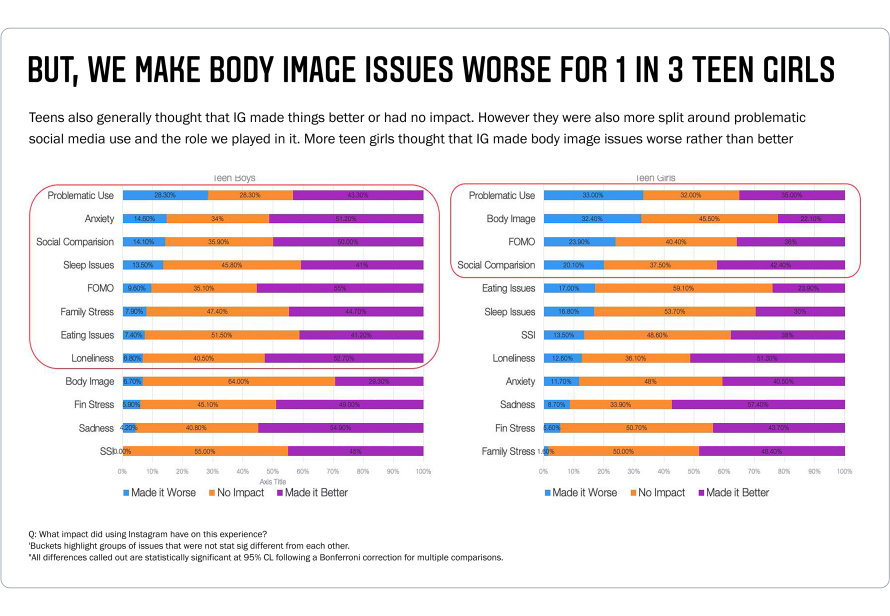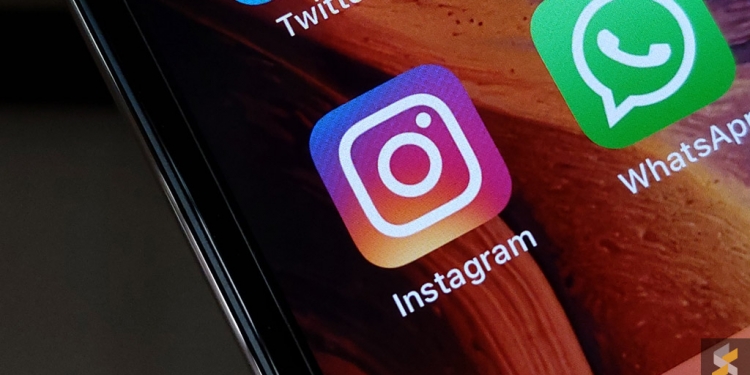A report by the Wall Street Journal revealed Facebook’s internal findings produced by their own research team. According to the report, Facebook has been very aware of damage caused to (especially) teen girls at least for the last three years—and it also came with statistics. In response, Facebook fired back with saying that the data was “simply not accurate” and taken completely out of context.
The Wall Street Journal shared an image (shared below) taken from a slide presentation done by Facebook’s research team. The slide reads in bold letters—“We make body image issues worse for one in three teen girls.”

The slide also reveals that there was a higher percentage of negative impact for teen girls when accessing Instagram. 32.40% of teen girls reported that the app made their body image worse, whereas only 6.7% of teen boys reported the same thing.
According to a different presentation slide, Facebook’s research had discovered that 13% of British teens and 6% of American teens felt that Instagram was the source of thoughts of suicide. And back in May, Head of Instagram Adam Mosseri had reported that Instagram’s negative effects on young teens was actually “quite small”.
After WSJ’s dish, Facebook released a long news post trying to explain that their data had been taken out of context. They explained that the data “relied on input from only 40 teens” and that it was “designed to inform internal conversations about teens’ most negative perceptions of Instagram”.
“These documents were also created for and used by people who understood the limitations of the research, which is why they occasionally used shorthand language, particularly in the headlines, and do not explain the caveats on every slide,” explained Facebook.
The platform also took the opportunity to try and explain every bit of information that was revealed by WSJ. They said the report “did not publish” the part where Instagram “helps many teens who are struggling with some of the hardest issues they experience”.
“And, among those same girls who said they were struggling with body image issues, 22% said that using Instagram made them feel better about their body image issues and 45.5% said that Instagram didn’t make it either better or worse (no impact),” continued Facebook.
While Facebook has revealed more about their leaked data—that was produced three years ago—they still haven’t come forward with any other research that they have produced recently. Mosseri even spoke about the leak, saying that it isn’t dirty laundry, and that he was “proud of the research”.
“I’ve been pushing very hard for us to embrace our responsibilities more broadly,” Mosseri insisted.
Instagram has also recently reported that a new app it is creating for kids has been put on hold amid growing opposition for the project. The platform said that it was pausing the work but would continue building on its parental supervision tools.
[ SOURCE ]







